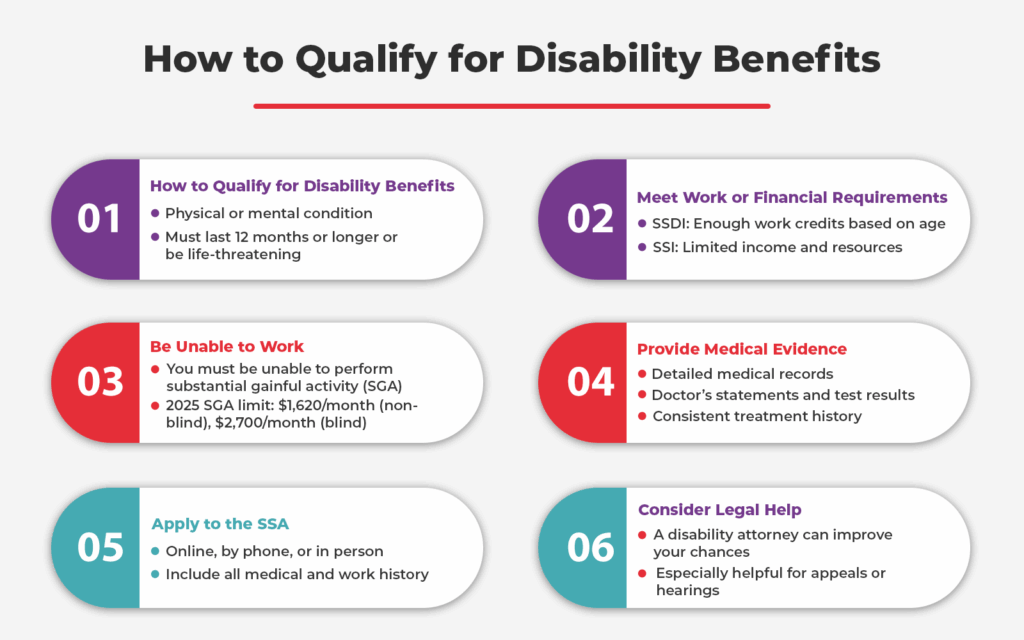
Is PTSD Considered a Disability? Qualify for Disability Benefits?
Post-Traumatic Stress Disorder (PTSD) is a severe mental health condition triggered by experiencing or witnessing a traumatic event. Symptoms often include flashbacks, nightmares, severe anxiety, and uncontrollable thoughts about the traumatic event. These triggered memories can significantly impair daily functioning and quality of the sufferer’s life. Given its debilitating nature, would think that PTSD qualifies as a disability and if it can lead to Social Security disability benefits.
The Keener Law Firm represents people suffering from all kinds of serious impairments, including Post Traumatic Stress Disorder. When PTSD plagues someone’s life with traumas from the past, they often become severely disabled and deserve to receive every benefit to which they are entitled. Our disability lawyers focus only on disability law, and we work for our clients as if they were family. We understand that an impairment like PTSD makes it extremely difficult for the client to gather all the documents and other evidence necessary to file a successful Social Security Disability claim. That’s why we are here to help.
PTSD Is a Disability
To determine if PTSD qualifies for Social Security disability benefits, it is essential first to recognize PTSD as a disability. The Social Security Administration (SSA) uses specific criteria to determine whether an individual’s impairment is a qualifying disability. The SSA defines a disability as:
a physical or mental impairment that lasts or is expected to last 12 months or more (or result in death) and prevents the person from performing substantial gainful activities.
PTSD qualifies as a disability for the purpose of receiving benefits.
Qualifying for Social Security Disability Benefits
The process involves a detailed evaluation of the severity of the condition and its impact on the individual’s ability to engage in substantial gainful activity (SGA).

In 2024, substantial gainful activity (SGA) is activity through which a claimant can earn at least $1,550 per month. Not every dollar someone receives during a month is counted by the SSA for purposes of the SGA. “Earned” dollars are counted but there are a number of significant exemptions that may apply to reduce a claimant’s countable earned income to a level within the acceptable criteria to receive SSDI or SSI benefits.
To qualify for Social Security disability benefits, an individual with PTSD must meet the SSA’s strict criteria. The SSA provides disability benefits through two main programs: Social Security Disability Insurance (SSDI) and Supplemental Security Income (SSI). Both programs require a rigorous evaluation process to determine eligibility.
What Social Security Will Use to Determine Disability
- Medical Documentation of PTSD: There must be medical evidence of exposure to actual or threatened death, serious injury, or violence, leading to intense fear, helplessness, or horror. This includes symptoms such as flashbacks, nightmares, intrusive thoughts, and severe anxiety.
- Functional Limitations: The SSA requires evidence of marked or extreme limitations in specific areas of functioning:
- Understanding, remembering, or applying information: Difficulty understanding instructions, retaining information, or learning new tasks.
- Interacting with others: Challenges in social interactions, maintaining relationships, and working cooperatively with others.
- Concentrating, persisting, or maintaining pace: Difficulty focusing on tasks, completing tasks in a timely manner, and maintaining productivity.
- Adapting or managing oneself: Struggles with regulating emotions, controlling behavior, and managing daily life activities.
Alternatively, if the individual’s PTSD does not meet the exact criteria, they may still qualify for benefits if the condition has caused significant functional limitations, preventing them from earning more than the SGA, $1,500 (2024 level).
Challenges in Qualifying for Benefits
Qualifying for Social Security disability benefits for PTSD can be challenging due to the relatively subjective nature of the symptoms and the rigorous evidence required. In many cases, initial claims are denied, but applicants have the right to appeal. Every denial should be appealed. The Keener Law Firm handles all Social Security Disability (SSDI) and Supplemental Security Income (SSI) denials from start to finish. You need not look beyond Keener Law for disability appeals representation.
What Keener Law Can Do for Your Disability Claim
- Providing thorough and consistent medical documentation is crucial. This includes detailed records from mental health professionals, treatment notes, psychological evaluations, and statements from therapists and counselors. Gaps in treatment or inconsistent records can weaken a claim. The Keener Law Firm will contact all of your healthcare providers and obtain all the necessary medical documentation supporting your disability claim. Our office does all the legwork.
- Third party witness statements family members, friends, employers, and colleagues about how PTSD affects the individual’s daily life and ability to work can provide valuable support for your disability claim. These reports provide a broader picture of the functional limitations caused by PTSD. Just as we contact and work with treatment providers, Keener Law will gather all the relevant information from people in your life who have witnesses how your PTSD affects your daily life.
- Demonstrating how PTSD impairs daily functioning and work capabilities is essential. This includes showing how symptoms prevent the individual from performing basic work-related activities, maintaining employment, or interacting appropriately with others in a work setting.
Given the complexities of qualifying for Social Security disability benefits for PTSD, getting the right Social Security disability law representation can significantly improve the chances of a successful claim.
Let The Keener Law Firm Help You Get Disability Benefits for Your PTSD.
PTSD is a debilitating condition that can significantly impair an individual’s ability to function and work. It is recognized as a disability and can qualify for Social Security disability benefits if specific criteria are met.
The SSA’s evaluation process for PTSD involves demonstrating the severity of symptoms, providing comprehensive medical documentation, and showing significant functional limitations. Although the process can be challenging, thorough documentation and experience, effective legal representation can enhance the chances of a successful claim.
Comment (1)
cabemanis88
says May 23, 2024 at 9:55 amHi, yup this post is truly good and I have learned lot of things from
it concerning blogging. thanks.